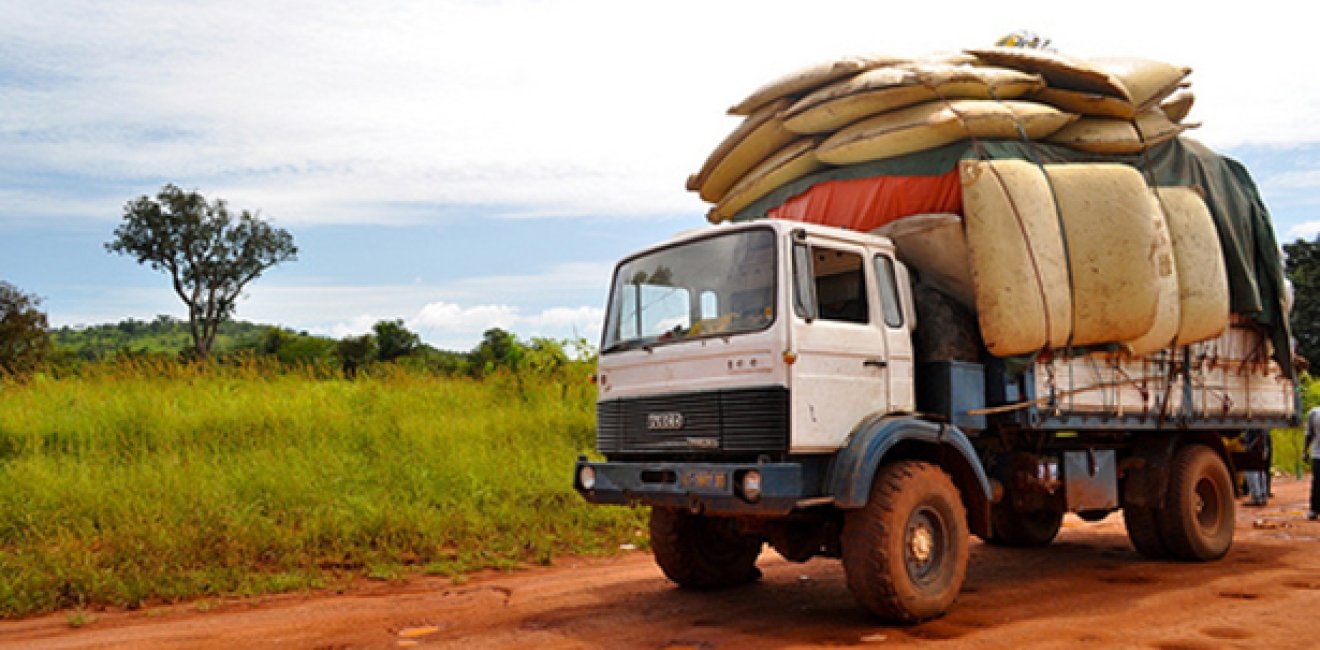
A blog of the Africa Program
Chinese Translation of the Week
The "resource curse" is reflecting the slow improvement in Africa, but also challenging the accountability of Chinese companies on this continent. According to the experiences of many international corporations, regions with abundant resources are always regions with drastic conflicts, and the key solution is to control community risks. Unfortunately, most of the Chinese companies in Africa are not able to manage those risks.
(本报记者 侯明辉)"资源诅咒"理论印证着非洲的缓慢变化,也挑战着中资企业的履责能力。资源丰富的地区往往冲突激烈,而根据国际公司的经验,解决冲突风险的核心在于社区风险管控。遗憾的是,中资企业在非洲还没有做到这一点。"客观地说,中国企业走出去,特别是走到非洲去,总体还是处于起步阶段。"在《中国与非洲的经贸合作(2013)》白皮书发布会上,商务部副部长李金早这样回答媒体的提问。
This article has been translated from Chinese. Click here to read the original version on Hexun News.
Misconception: Relying on Governmental Support
Firstly, the lack of community risk management is mainly caused by the misconceptions of Chinese entrepreneurs. Many Chinese companies put more emphasis on winning the support from African governments, and believe that a good relationship with the government can be the panacea for everything.
"It is the inertial mindset of many Chinese enterprises. But this is the way they do business in China, not in Africa. " said Ren Peng, Program Coordinator in Global Environmental Institute, who has conducted many research and surveys in Africa. He explained that in African countries, the public and non-governmental organizations (NGOs) always participate a lot in social affairs, and their impacts are very significant. They are the external stakeholders that companies cannot neglect. In addition, the public in Africa often have low confidence in their governments. The corporations that stay "too close" to the governments may leave an impression of government-business collusion that will hurt the public interest. It is disadvantageous to the harmonies coexistence of Chinese enterprises and African communities.
Moreover, the current Chinese investments are concentrating more on ecological sensitive industries such as water conservancy, mineral resources and energy, which are prone to trigger livelihood issues easily. When there are insufficient demolition compensations or environmental damages, sole dependence on governments cannot reduce the risks of community conflicts.
Ren Peng also said that in those African countries with social instability, people may also transfer their resentment to governments onto those companies that are staying side by side with the governments. This will also lead to difficulties in controlling community risks.
Capability: Lack of Systematic Planning
Compared to the European or American enterprises in Africa, Chinese companies generally do not have the systematic planning for community management, namely demolition resettlement, professional training, charity and philanthropy, etc. Most of the Chinese companies do not include public welfare programs into their development agenda. And the lack of localized management also causes community risks. In 2006, Sinohydro Group employed a large amount of foreigners in the construction project of Bui Dam in Ghana. Local media and communities blamed them for taking away the jobs that belonged to Ghanaians. Ren Peng pointed out that cooperation with local NGOs can reduce the cost of frictions and communications, thus enhance the speed of localization.
Promoting and Outreaching: Not Enough and Not Good
Wang Xiaoguang, the director of Beijing Rongzhi Corporate Social Responsibility Institute, said that due to the insufficient and ineffective promoting and marketing skills, many beneficial work conducted by Chinese enterprises are not known to the local, which leads to an awkward situation of "paid but not gained."
In Angola, China Tiesiju Civil Engineering Group invested more than RMB 6 million to build a water purification plant with cutting-edge equipment in 2011. It guaranteed the water quality for local residents and highly praised by the government, but the public rarely knows that. Xinjiang Construction Corps employed 70% to 90% of local workers in their farms and brick factories, but most of the Angolans are not aware of this fact, still thinking Chinese companies only hire Chinese.
Ren Peng thinks that Chinese enterprises should actively promote their beneficial work with a high profile, reinforce their positive impressions among communities, and establish reacting mechanisms to cope with public relation crisis. Both Chinese state-owned enterprises and private businesses in Africa do not have informational disclosure departments and efficient outreaching channels such as local advertisements. He said: "Low-profile philanthropic works cannot bring extra credit to the company. Although there are difficulties in communication, companies should not remain silent during crisis."
Article translated by Laiyin Yuan, Staff Intern for the Kissinger Institute on China and the United States at the Wilson Center.
Photo attributed to Fairphone via Flickr Commons.

Africa Program
The Africa Program works to address the most critical issues facing Africa and US-Africa relations, build mutually beneficial US-Africa relations, and enhance knowledge and understanding about Africa in the United States. The Program achieves its mission through in-depth research and analyses, public discussion, working groups, and briefings that bring together policymakers, practitioners, and subject matter experts to analyze and offer practical options for tackling key challenges in Africa and in US-Africa relations. Read more

Explore More in Africa Up Close
Browse Africa Up Close
The Innovative Landscape of African Sovereign Wealth Funds



